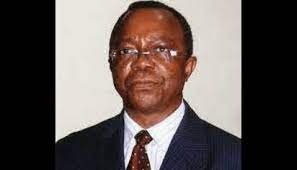Nigeria won’t benefit from several taxes, according to LCCI President

ABUJA – Gabriel Idahosa, President of the Lagos Chamber of Commerce and Industry (LCCI) and Chairman of the Council, has issued a warning against the Federal Government’s many taxation policies, stating that such developments are detrimental to the economy. Idahosa stated that it was impossible to start raising money for every tiny government initiative during an appearance on the Arise television program that was televised in Abuja.
He stated that the federal government ought to enhance the Federal Inland Revenue Service’s (FIRS) ability to levy taxes, pointing out that as many as 40% of taxable individuals and entities were not subject to taxation. According to him, nations with the fewest taxes are also the ones with the most effective tax collection systems.
His words: “It is not possible to begin to raise money for every little thing in government. To levy for cyber security, industrial training, insurance, the levy for the police trust fund, and others, the whole approach in recent times of trying to put a levy on everything is simply not the way to manage public finance in any country.
“The business of raising revenue for government is assigned to a specific organization in government which is the Federal Inland Revenue Service FIRS in the case of Nigeria. It is the business of the FIRS to get revenue for all the services of the Federal Government of Nigeria. The countries that are most efficient in tax collection are the countries that have the minimum number of taxes.
Since the Taiwo Oyedele Tax Reform Commission was established, it has been established that certain levies and taxes do not result in a significant increase in revenue. Additionally, in any nation, the agencies responsible for these kinds of activities—whether they be high-level security or intelligence—are funded by national budgets, and the methods by which they are funded are typically not up for discussion in public. Nobody reveals the sources of funding for national intelligence agencies.
“The technical issue of whether the Act was correct or not is minor. The big issue is whether should government of Nigeria encourage all agencies to come with all manner of levies for every single thing. You want something on health and you have a levy, in security, you have a levy, etc. That should be the more important conversation, that there should be a concerted effort to increase the capacity of the FIRS to do the job of revenue collection.
Now, less than 40% of the taxable population is subject to taxes. Bringing every person who is subject to taxation under the net and imposing the appropriate taxes on them comes first. Raising the tax is not even necessary. Over 60% of taxable people and corporations do not pay taxes. That ought to be the main priority. Identity is taxed at the lowest level. Even in the most isolated villages, identify the economic actors at all levels.
The capacity of the FIRS to reach tax payers across the country was not built over time but with the dwindling of oil revenue, that capacity has been increased. You are beginning to see FIRS offices in several parts of the urban areas and state capitals but more than 60 percent of Nigerian businesses are not in the urban areas or state capitals. Any country that wants to collect tax, has to go very granular. Businesses that exist in every village must be taxed and that is where the FIRS is moving slowly but steadily”, he stated.








